Why do You Need Progressive Web Applications For Ecommerce?
With the growing number of people indulging in online shopping, it is becoming imperative for e-commerce firms to create an amazing experience for their customers. For these e-commerce companies, cross-device accessibility on mobile phones and other mobile devices has a significant role in boosting presence and sales. With this article we will put light on all the relevant aspects that make progressive web apps a must for e-commerce. As per emarketer, the mobile e-commerce business is expected to generate $3.5 million in 2021, capturing 72% of the total e-commerce sales market share. Moreover, the pandemic has changed the dynamics of customer-business interaction. The credit of such a sudden and vast shift in e-commerce practices can be attributed to the highly functional and engaging Progressive web apps.
 Many businesses have benefited dramatically from Progressive Web Apps since its release in 2015 making it a favorite among eCommerce app development services. They can provide highly engaging user experiences while also reaching out to new audiences. Big firms like Twitter, Trivago, Alibaba, and Walmart have reported quadrupled conversion rates and faster revenue growth than ever before.
Many businesses have benefited dramatically from Progressive Web Apps since its release in 2015 making it a favorite among eCommerce app development services. They can provide highly engaging user experiences while also reaching out to new audiences. Big firms like Twitter, Trivago, Alibaba, and Walmart have reported quadrupled conversion rates and faster revenue growth than ever before.
Progressive Web Applications for eCommerce enables the app-like experience of a native app to a broader population on the mobile web. These success stories are alluring for businesses of any size to make the best possible use of this technology. Before having an in-depth look at its importance, let’s help you understand better about PWAs.
What are Progressive Web Applications?
PWA is a technology that helps to develop websites having the same user experience and mobile applications. It creates web applications by combining the native features of the app with the elements of the website. A Progressive Web Application (PWA) is a website that looks and acts like a native app, which means it’s swift, can be added to a smartphone’s home screen, send push notifications, and even run offline.
Characteristics of Progressive Web Apps
- Installable- Available for the device’s home screen.
- Linkable-Helps you to share it by simply sending the URL.
- Progressive– Bridges the gap as it is also usable on the older browsers and the latest ones.
- Independent of Network– Works with a poor network connection and even offline.
- Re-engaging– Can send notifications about new content availability.
- Responsive– Can be used on any device with a browser and screen.
- Safe– Provide a secure connection between the app and you against third parties.
Difference between Native, web and Progressive web apps
Why do you need Progressive web apps?
With almost 60% of the traffic coming from mobile devices, businesses need to provide the best possible experience for engaging customers. Though mobile traffic has grown exponentially over the years, conversion rates still haven’t caught up with the pace. As per Google reports, e-commerce stores availing PWA for e-commerce development generally lead to a 20% boost in revenue, with conversion rates doubling in many cases.
This creates the imperative demand for existing and new e-commerce businesses to deliver their services simply as usual in online stores but as a Progressive web app. With numerous eCommerce firms not adopting this model due to negligence or lack of knowledge, you can bring significant business growth by availing of PWA as it helps you get ahead in the competition. Though PWAs provide numerous benefits in the e-commerce domain, some pre-requirements need to be met to qualify for PWA. These criteria are:
- Create App shell
An application shell (or app shell) architecture is one technique to create a Progressive Web App that launches instantaneously on your users’ displays, much like native apps. The PWA runs quickly and efficiently, thanks to an app shell. This is a must-have for any app with dynamic content and consistent navigation.
- Web App Manifest
For PWA, you require a Web App Manifest, i.e. a file containing all the metadata that a mobile device needs to know to install it on the home screen of the device. This file includes all the relevant information, including colors, icons, fonts, and landing page URLs.
- Service Worker
A service worker enables PWA to operate during poor network connections and offline mode making it one of the crucial components for e-commerce business. The goal of this network script is to continuously scan the system and identify where it should download content from the cache or server.
Benefits of Adopting Progressive Web Applications for E-commerce:
- Better User Adoption
Having the same potential as native apps, PWAs facilitate a highly engaging user experience. As these Progressive Web Applications can be installed on the device’s home screen, it provides direct access to the users. Due to various constraints, people don’t usually download mobile apps for everything. The Progressive App Development makes downloading as simple as visiting a link and accepting a prompt. The eCommerce website will become a “true” app rather than a browser shortcut by being added to the user’s home screen. This provides the same result as downloading from an app store but without the inconvenience of going through the app shop process. Furthermore, once the PWA is installed on the home screen, it is unnecessary to update it.
- Better User Engagement
Having similar features to native apps, Progressive Web Applications can send push notifications for mobile devices. In this intuitive way, e-commerce businesses can reach their audience directly on their mobile devices, creating a highly engaging experience. Compared with traditional marketing strategies such as emails, these push notifications enabled by PWAs garner wide attention. Push notifications appear directly on the user’s mobile device, eliminating the efforts required by the e-commerce firm to collect email addresses or other relevant information for customer engagement. As most internet users surf anonymously without leaving behind any contact information or setting up an account, it provides the opportunity for e-commerce entities to turn this blindspot into a sweet spot.
- Continuous delivery at an affordable cost
Building, optimizing, and maintaining a responsive eCommerce website is a resource-intensive process, and when additional native app development is added, the cost grows exponentially. This happens not because of app creation but due to ongoing maintenance, improvements, and app store taxations.
With Progressive Web Application, you can eradicate the need to develop, maintain, and market any other platform apart from the PWA website. This creates a once-in-a-lifetime chance to serve all channels from a single platform that is built, managed, and supported by a single team. It dramatically cuts costs and time-to-market while maintaining a multi-channel approach and providing all clients with the same user experience and capabilities.
- Excellent performance
The demand for better speed has become one of the core issues for internet users with the massive growth of mobile-first and mobile-online usage. As per the report,53% of the users will leave a website that takes more than 3 seconds to load, and conversion rates reduce by 21% with each second of delay in page loading.
Progressive Web Applications for eCommerce are specially designed to provide smooth user experiences with fast loading. Cashing on the speed benefits derived from both web and client-side caching outshines both page loads. As PWAs can load within a second, it creates an authentic user experience that results in better user engagement on eCommerce platforms. Additionally, Progressive Web Apps comparatively use less disk space on both the business server and the user’s device, providing numerous advantages faster loading, and less data usage.
How PWAs Help to Improve SEO?
As Progressive Web Application is web-based, it makes it easier for search engines to discover everything. Google and Bing can link to, share, and rank any material that is contained within a PWA. Native apps, on the other hand, do not allow search engine robots to crawl them. Users may have immediate access to the most sophisticated digital products on any device, at any time, by breaking down the barriers between web and Native.
The crucial parameters for SEO ranking are fast loading time, less data usage, reduced bounce rates, and higher user engagement. As PWA offers all the advantages mentioned above, it helps in boosting the SEO rank and further leads to better e-commerce prospects. Moreover, Google also prioritizes ranking well-designed PWAs over any other website.
However, it would be best to focus on technical SEO as it ensures the technology of PWAs is served in the right way. Google crawls PWA sites in the same way it crawls AJAX or JavaScript sites. However, search engines have historically struggled to identify, crawl appropriately, and index information largely reliant on JavaScript. Because Progressive Web Apps use JavaScript’s flexibility, Google considers a single published page to be a JavaScript site.
Higher conversion rates
This is a common understanding that a better user experience results in higher conversion rates. If all the frustrating points are eliminated from an online store, it makes the customer experience smooth, achieving desired eCommerce business goals. PWAs are faster and more efficient in every way, and the user notices this. From full-screen browsing, quick page loads, and minimum device space consumption, they have it all. Whether or not triggered by a highly engaging push notification, the user has a far better experience, completes their duties, and will return happily in the future.
Top 3 Case Studies of Progressive Web Applications
Bookmyshow

Bookmyshow India’s largest ticketing firm has a broad user base. As the number of the mobile audience grew, the company started facing high bounce rates as the mobile website’s loading speed was not up to the mark. Moreover, Bookmyshow’s native app too due to heavy data and memory usage requirements.
The PWA effect
Understanding the growing business requirements, Bookmyshow launched a PWA to provide a fantastic user experience and tap into a more extensive customer base.PWA provided the opportunity for Bookmyshow to move away from its PHP backend stack and build and robust, technologically advanced web app that offers a reliable and engaging experience.
Results:
- 54 times smaller as compared to an Android app and 180 times smaller than iOS.
- PWA enables less than 2.94 seconds to load and checkout within 30 seconds.
- 80% increase in conversion rates.
Aliexpress

Aliexpress is one of the leading global online retail companies operational since 2010. As their mobile commerce platform was growing exponentially, the company wanted to cater to mobile users’ needs to provide the optimal user experience.
The PWA effect
By opting for PWA, Aliexpress provided a solution that meets the requirements of both web and mobile customers. The fast and reliable PWA enabled Aliexpress to revamp its mobile presence, improve user engagement, and increase conversion rates.
Results:
- 82% increase in conversion rate for iOS users
- 104% new users across all browsers.
- 74% increase in time spent per session
Trivago

Trivago is one of the reputed hotel search engines available in 33 different languages that help users find the best hotel offers. As more people were switching to mobile, the brand realized the importance of mobile experience. The company was looking for a custom solution to provide push notifications, offline mode, and home screen shortcuts.
The PWA effect
By opting for the PWA solution, it became possible for Trivago to develop an app without involving a big team of software developers. They were able to create an intuitive user interface and add the application to the home screen for easy access.
Results:
- 97% increase in click-out to hotel offers.
- 150% increase in audience engagement.
- 2% average repeat visits as compared to 0.8% before PWA.
Conclusion
Mobile phones are prevalent in practically every aspect of our lives, and they are fundamentally changing the way we buy. Our demand for more engaging and better user experiences, faster loading times, instant access to information, and network independence grows. As business owners, we can’t ignore the combination of native apps’ immersive experience and PWAs’ reach and ease of access to the internet. It’s not too late to start availing Progressive web app development services for your business prosperity. Whether you go all-in on a PWA strategy or start small with Push Notifications and “add to the home screen,” establishing a PWA e-commerce development strategy should be a top priority for every firm, large or small. With minimal expenditures and a record-breaking time-to-market, anyone can start significantly transforming the experience they provide to their audience right now, increasing conversion rates – and eventually enhancing their bottom-line outcomes.
About The Author

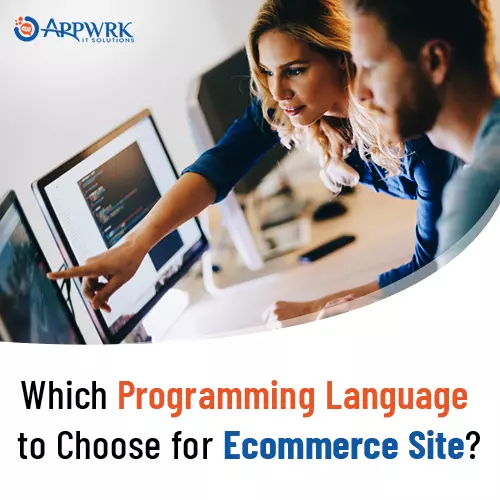
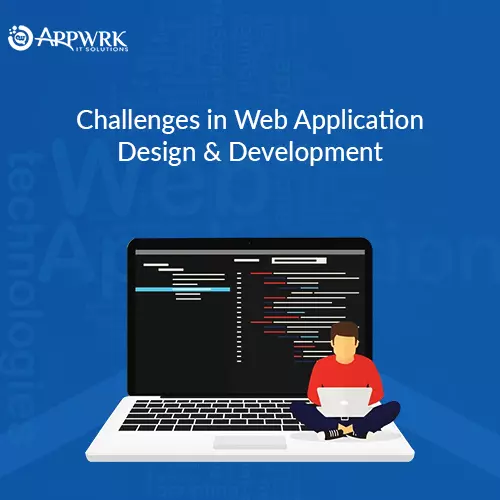
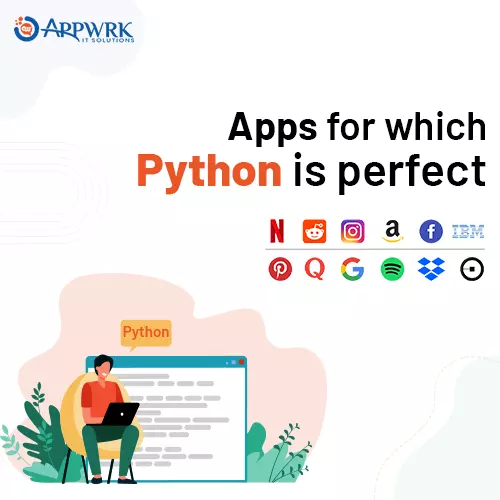
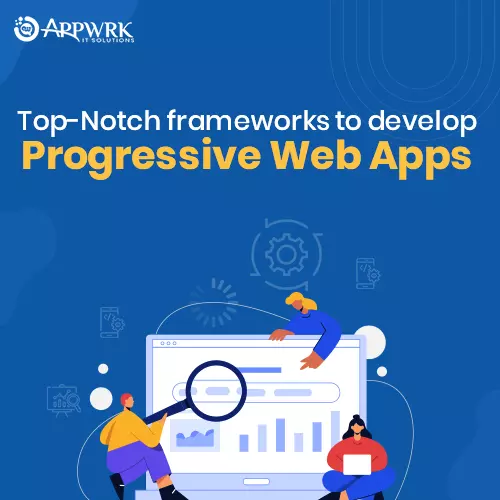
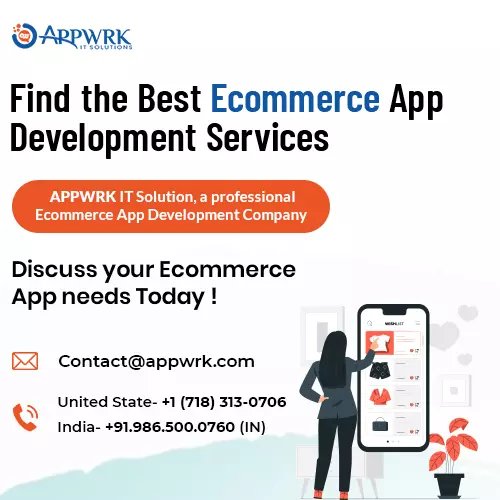
 Free Quote
Free Quote
















































